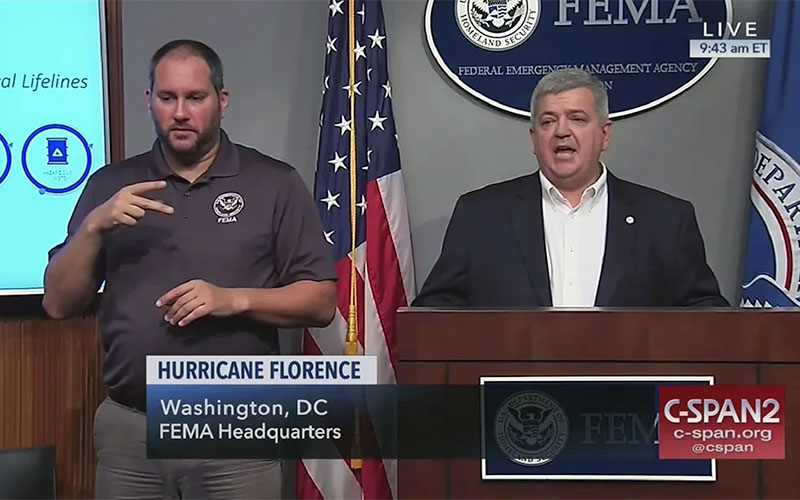Professor Aims to Improve Emergency Alerts for Deaf Community
11/03/2023

A sign language interpreter for FEMA assists with emergency messaging during Hurricane Florence in 2018. (Source: C-SPAN).
The inability to hear real-time weather and emergency alerts puts those with hearing loss at a disadvantage.
“For the most part, emergency communications and specialized education and training programs designed to promote weather safety and preparedness for this group are minimal at best,” said Dr. Chongming Wang, JSU associate professor of emergency management. “Meanwhile, it is noteworthy that within a rapidly aging society, the number of persons with hearing loss will increase, potentially rendering traditional communication strategies unproductive.”
The National Oceanographic and Atmospheric Association (NOAA) has awarded Dr. Wang a $237,000 grant through its Weather Program Office to study emergency communications and preparedness among the deaf and hard of hearing. She aims to advance the understanding of how safety and sense of security are compromised when notifying the deaf and hard of hearing during extreme weather events - especially during tornadoes, severe thunderstorms, floods and winter storms.Dr. Wang will engage the deaf and hard of hearing community through surveys, focus groups and individual interviews. Emergency management professionals, warning partners and other stakeholders will also be interviewed to analyze processes and procedures. The goal is to improve how critical information is delivered to those with hearing loss.“The deaf and hard of hearing population should be given the same opportunity as everyone else to deal with weather emergencies,” Wang said, “so they can embrace a safer and weather-ready future.”

